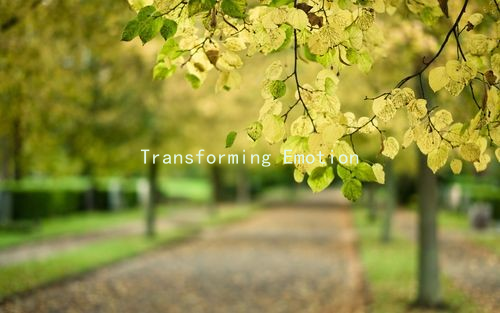Transforming Emotional Attitudes into Positive Relationship Skills
Transforming Emotional Attitudes into Positive Relationship Skills
In the intricate world of romantic relationships, emotional attitudes often serve as the foundation for how we connect, communicate, and ultimately thrive with a partner. Transforming these emotional landscapes into positive relationship skills not only enhances individual wellbeing but also solidifies the connection between partners. Here are key strategies to harness emotional attitudes and cultivate fulfilling relationships.
Understanding Emotional Attitudes
At the core of every relationship are emotional attitudes—our feelings, beliefs, and expectations that shape how we perceive ourselves and our partners. These can range from feelings of love and excitement to insecurities and fears. The first step in transformation is awareness. Reflecting on your emotional attitudes allows you to understand what influences your thoughts and behaviors within a relationship. Journaling or discussing these feelings can provide clarity and insight.
Practicing Empathy
Empathy is a vital skill in any relationship. By practicing empathy, you can bridge the gap between emotional attitudes and effective communication. This involves actively listening to your partner, attempting to understand their perspective, and validating their feelings. When both partners feel understood, it fosters an environment of safety and respect, encouraging open dialogue about feelings and needs.
Shifting Negative Attitudes
Negative emotional attitudes, such as jealousy or resentment, can hinder relationship growth. To transform these feelings, consider reframing your thoughts. For instance, instead of viewing a partners success as a threat, see it as an opportunity for both of you to grow together. Replacing negative thoughts with positive affirmations can also bolster your relationship health. Acknowledge what you appreciate about your partner regularly to shift your focus from whats lacking to whats thriving.
Developing Effective Communication Skills

Communication is the bedrock of a successful relationship. Effective communication involves more than just exchanging words; it requires clarity, honesty, and vulnerability. Utilize I statements to express your feelings without blaming your partner, such as, I feel neglected when we don’t spend time together. This approach fosters understanding rather than defensiveness, helping both partners address issues constructively.
Setting Healthy Boundaries
Boundaries are essential in any relationship, as they protect individual emotional wellbeing while fostering mutual respect. Communicate your needs and desires clearly, and encourage your partner to do the same. Establishing boundaries not only enhances self-respect but also reinforces trust, allowing both partners to feel secure and valued.
Cultivating Gratitude and Positivity
A positive emotional attitude greatly influences relationship dynamics. Practicing gratitude—by acknowledging and expressing appreciation for your partner—can lead to increased satisfaction in the relationship. Share what you love about your partner regularly and celebrate each others achievements. This habit reinforces positive feelings and strengthens the emotional bond you share.
Continuous Learning and Adaptation
Relationships are dynamic, and so are emotional attitudes. Its critical to adopt a mindset of continuous learning. Engage in activities that strengthen your bond, such as workshops, reading relationship books, or simply exploring new interests together. As you evolve individually and as a couple, remain open to adapting your emotional attitudes and relationship skills.
Conclusion
Transforming emotional attitudes into positive relationship skills is a deliberate and ongoing process that lies at the heart of thriving romantic partnerships. Through self-awareness, empathy, effective communication, healthy boundaries, gratitude, and a commitment to growth, both partners can cultivate a flourishing relationship. Remember, the journey might be challenging, but the rewards of a loving, supportive relationship make every effort worthwhile.





